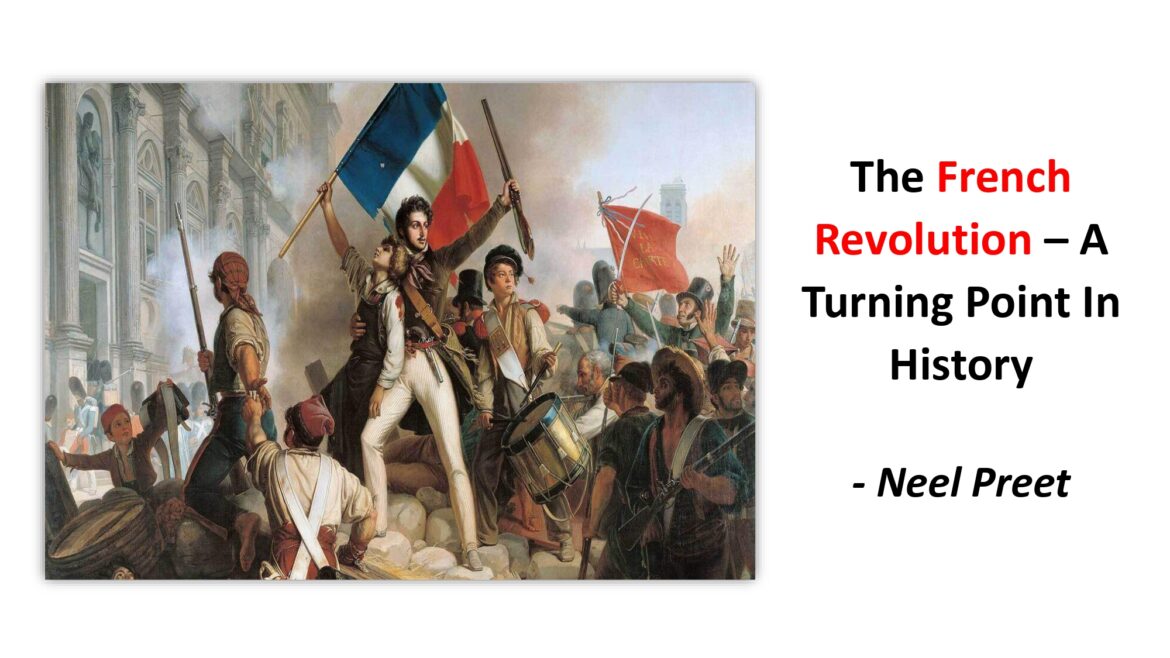Introduction: The French Revolution, which spanned from 1789 to 1799, was a monumental event that forever transformed the political, social, and cultural landscape of France and had far-reaching implications across the world. It was a time of upheaval, marked by radical political changes, social unrest, and the rise of ideologies that championed liberty, equality, and fraternity. In this article, we will delve into the causes, key events, and profound consequences of the French Revolution!
Causes of the French Revolution: The French Revolution was fuelled by a combination of factors, including economic grievances, social inequality, political instability, and intellectual enlightenment. Years of financial mismanagement and an unequal tax system burdened the common people, while the nobility and clergy enjoyed privileges and exemptions. Ideas of the Enlightenment, with their emphasis on reason, individual rights, and democracy, inspired intellectuals and played a crucial role in shaping public opinion.
Key Events and Phases: The French Revolution can be divided into distinct phases, each characterized by different events and shifting power dynamics. The Revolution commenced with the Estates-General meeting in 1789, where the Third Estate (commoners) formed the National Assembly and declared itself the representative body of the nation. The storming of the Bastille, a symbol of royal tyranny, on July 14th, 1789, marked a pivotal moment of popular uprising!
The subsequent years witnessed a series of transformative events, including the adoption of the Declaration of the Rights of Man and Citizen, the abolition of feudalism, the Reign of Terror, and the rise of Maximilien Robespierre and the Committee of Public Safety. The execution of King Louis XVI in 1793 and the subsequent ascent of Napoleon Bonaparte to power in 1799 marked the end of the Revolution.
Consequences and Legacy: The French Revolution had profound and lasting consequences, both in France and globally. It dismantled the old regime, eradicating the feudal system, and establishing a republic. It sought to instil the values of liberty, equality, and fraternity, albeit with varying degrees of success. The Revolution also brought about important legal and political reforms, including the Napoleonic Code, which influenced legal systems worldwide!
Furthermore, the French Revolution spread revolutionary ideals and sparked nationalist movements across Europe. It challenged the entrenched power of monarchies and inspired subsequent waves of revolutions in the 19th century. The French Revolution’s ideals of equality and democracy resonated with oppressed populations worldwide, igniting aspirations for political and social change.
However, the Revolution was not without its dark side. The Reign of Terror, marked by mass executions and political purges, reflected the extreme violence that can arise in times of upheaval. The Revolution also faced resistance from conservative forces and encountered internal divisions, leading to a period of political instability!
Conclusion: The French Revolution was a watershed moment in human history, reshaping the political and social landscape of France and leaving an indelible mark on the world. It served as a catalyst for the spread of revolutionary ideas and the pursuit of democracy, equality, and individual rights. Despite its shortcomings and complexities, the French Revolution remains an iconic event that continues to be studied, debated, and celebrated for its profound impact on the course of history.
Written By NEEL PREET – Author of the Books, Voice From The East (2016); Journey With Time Place And Circumstances (2018) & Indian Defence Files (2021).



